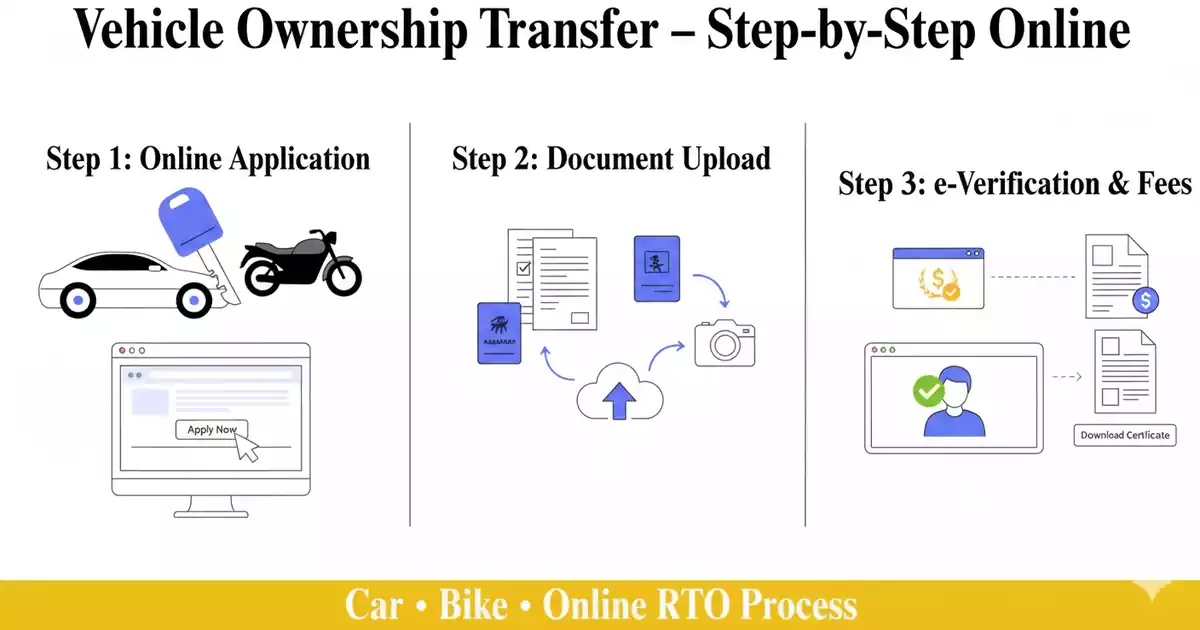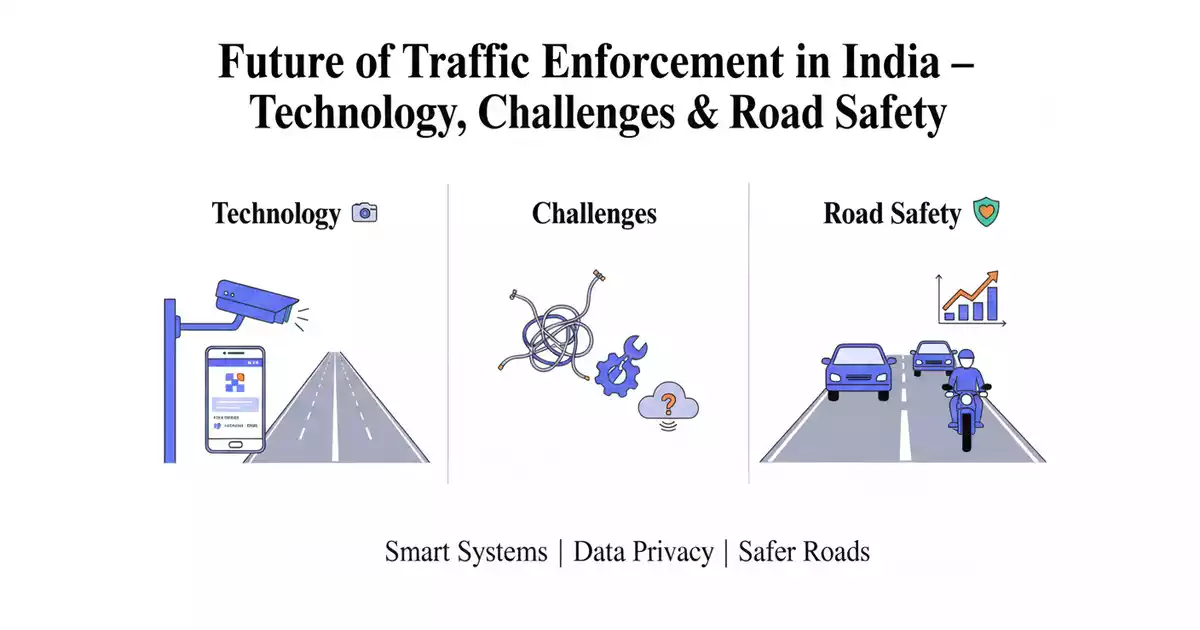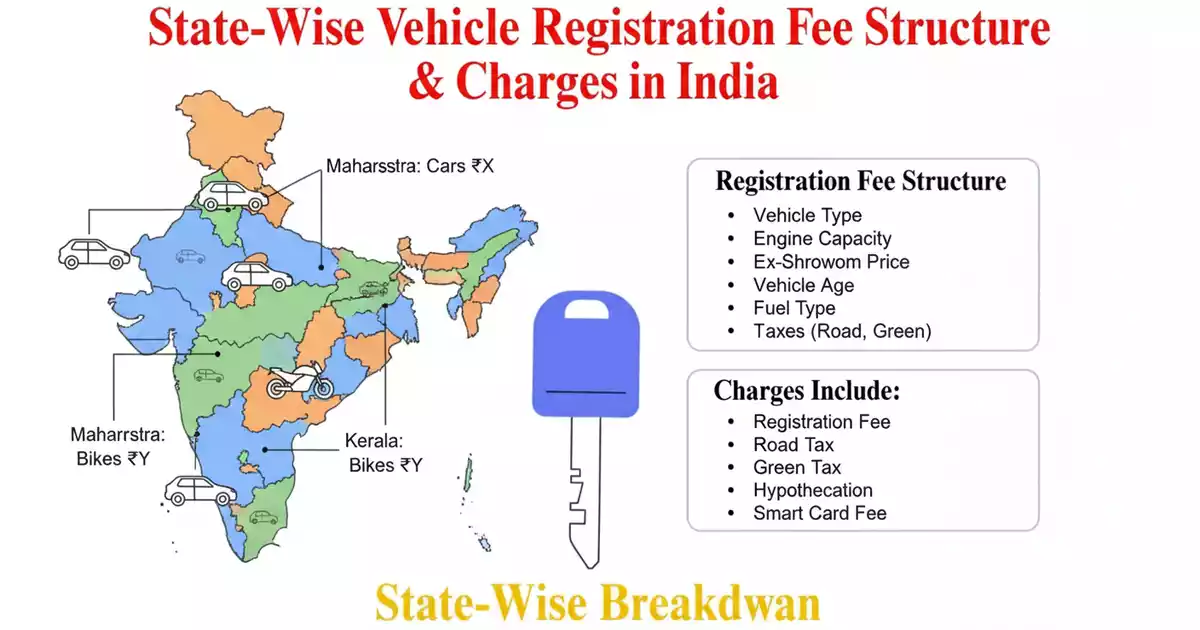Vehicle Ownership Transfer – Online & Offline RTO Process in India
Buying or selling a vehicle in India isn’t just about exchanging money and keys—it also requires a legal step called vehicle ownership transfer. This process ensures that the buyer becomes the official owner in the eyes of the law, while the seller is freed from any future liabilities such as challans, road tax, or accidents involving the vehicle.
In India, the ownership transfer process is regulated by the Regional Transport Office (RTO). With digital initiatives, the transfer can now be done both online and offline, making it easier for vehicle owners. In this article, we’ll explain the complete procedure, required documents, applicable fees, and timelines for transferring vehicle ownership.
1. What is Vehicle Ownership Transfer?
Vehicle ownership transfer is the process of legally changing the registered owner’s name of a vehicle from the seller to the buyer. It is mandatory when:
- Selling a used car or bike.
- Transferring vehicle to a family member.
- In case of the death of the registered owner.
- Vehicle repossession by banks or finance companies.
Without transfer, the original owner continues to remain legally responsible for the vehicle.
2. Types of Vehicle Ownership Transfer
There are three main scenarios in India where ownership transfer takes place:
a) Sale of Vehicle
The most common case, where the vehicle is sold to another individual. The new buyer must register their name in the RTO records.
b) Transfer due to Death of Owner
If the registered owner passes away, the legal heir (spouse, children, or next of kin) can transfer the ownership by providing succession documents.
c) Transfer within Family/Gift
Sometimes, ownership is transferred as a gift or within family members. In such cases, the process remains similar but requires a gift deed or NOC.
3. Documents Required for Vehicle Ownership Transfer
To complete the process smoothly, the following documents are essential:
- Original RC (Registration Certificate) of the vehicle.
- Valid Insurance Certificate.
- Pollution Under Control (PUC) Certificate.
- Address Proof of buyer (Aadhaar, Passport, Voter ID, etc.).
- Form 28 – Application for NOC (if transferring between states).
- Form 29 – Notice of transfer of ownership.
- Form 30 – Report of transfer of ownership.
- Form 31 – For transfer in case of owner’s death.
- PAN card copies of buyer & seller.
- Passport-size photographs.
- Sale affidavit or succession certificate (if applicable).
4. Online Vehicle Ownership Transfer Process
Thanks to Parivahan Sewa (VAHAN portal) by the Ministry of Road Transport and Highways (MoRTH), the process can be completed online.
Steps:
- Visit the official Parivahan Sewa portal.
- Select “Vehicle Related Services”.
- Choose your state and RTO.
- Enter the vehicle registration number and chassis details.
- Select “Transfer of Ownership” from the menu.
- Upload the required documents (RC, insurance, ID proof).
- Pay applicable fees online via net banking, UPI, or debit card.
- Book an appointment at the RTO (if physical verification is needed).
- Submit biometric details and collect acknowledgement.
- The updated RC with new owner details will be issued by post or can be downloaded online.
Processing Time: Usually 15–30 working days.
5. Offline Vehicle Ownership Transfer Process
For those who prefer the traditional method, ownership transfer can also be done offline at the RTO office.
Steps:
- Visit the local RTO office where the vehicle is registered.
- Collect and fill Form 28, 29, and 30.
- Attach required documents (RC, insurance, ID proof, PUC).
- Pay the required registration transfer fee at the counter.
- Submit the application along with passport-sized photographs.
- Vehicle may be physically inspected by RTO officials.
- Collect the acknowledgement slip and track status online/offline.
- New RC is issued in the buyer’s name.
Processing Time: Around 20–30 working days, depending on RTO workload.
6. Fees for Vehicle Ownership Transfer
The charges vary slightly across states, but typically:
- Two-wheelers: ₹150 – ₹300
- Cars (LMV): ₹300 – ₹600
- Additional Fee: ₹200 – ₹500 for smart card RC
- Hypothecation Removal (if loan cleared): ₹200 – ₹500
Some states may levy additional road tax if the transfer is between different states.
7. Key Points to Remember
- Transfer within same state: Only RTO transfer fee is required.
- Transfer between states: Requires NOC from original RTO and re-registration in the new state.
- Hypothecation (Loan Vehicle): If the vehicle has a loan, clearance certificate from the bank is mandatory.
- Timeline: Transfer should be initiated within 14 days for same state and 45 days for inter-state transfers.
- Legal Responsibility: Until transfer is complete, the seller is still liable for accidents, challans, or crimes involving the vehicle.
8. Penalties for Non-Transfer of Ownership
Not transferring ownership can lead to:
- Legal complications in case of accidents.
- Insurance claim rejections.
- Fines imposed by RTO for delay.
- Seller being held liable for buyer’s violations.
9. Benefits of Completing Ownership Transfer
- Legal Security – Seller is freed from future liabilities.
- Insurance Validity – Buyer can claim insurance in their name.
- Resale Value – Vehicle resale becomes smoother with correct ownership.
- Transparency – Both buyer and seller have peace of mind.
Conclusion
Transferring vehicle ownership is a mandatory and essential step in India when selling or purchasing a vehicle. Thanks to the Parivahan Sewa portal, the process has become more convenient, with online and offline options available. Whether you’re buying a used car, selling your bike, or transferring to a family member, following the proper RTO process ensures legal compliance and security.
Don’t skip this step—it saves you from potential fines, legal issues, and insurance troubles.
FAQs
1. Can I transfer vehicle ownership online in all states?
Yes, most states support online transfers via the Parivahan portal, but some may still require partial offline verification.
2. How long does ownership transfer take?
It usually takes 15–30 working days.
3. Do I need insurance for ownership transfer?
Yes, valid insurance in the seller’s name is mandatory during transfer.
4. Can I transfer a vehicle if I still have a loan on it?
Yes, but you need a No Objection Certificate (NOC) from the bank.
5. What happens if I don’t transfer ownership after selling a vehicle?
The original owner will remain legally liable for fines, accidents, or crimes involving that vehicle.



